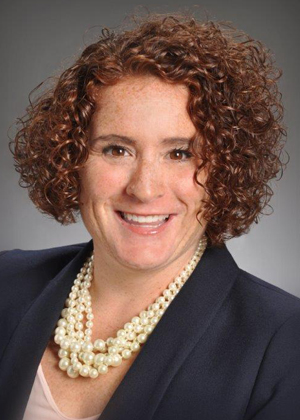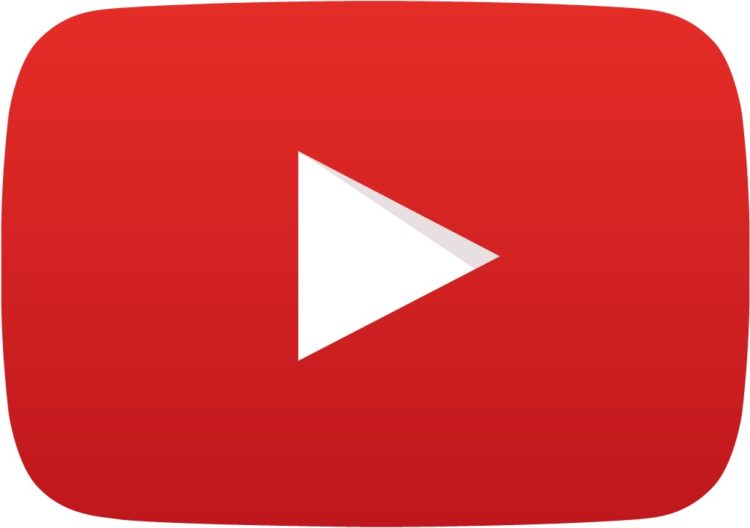

The coronavirus has changed everything. In the fourth in a series of special Brand Lab Series™ episodes, we talk about how to rethink Sales and Marketing with Erin Kelly. Erin is the Vice President of Sales and Marketing at Network Health, a Wisconsin-based health insurance company.
In this episode with Erin, you’ll learn about…
Welcome to our fourth in a special series of Brand Lab Series™ podcast, where we try to rethink our business and our personal futures in this new reality. I’m super excited about today’s guest. Erin Kelly is the Vice President of Sales and Marketing at Network Health. And one of the challenges that we see a lot of businesses facing right now is how to rethink sales and marketing in this unknown future. Erin, welcome to the podcast.
Thank you, Brian.
Sales and marketing, like pretty much everything in our life that we joked about before we were recording, has really changed during the coronavirus. Network Health has been an organization up in Wisconsin serving families and businesses for nearly 40 years, out of multiple offices. But like all businesses including AE Marketing Group, we’ve all had to go virtual and remote. So talk about how is your organization adapted to this new reality?
Sure. Network Health has done a great job of making the change to a virtual home office, and a lot of work had been done at Network Health from an IT perspective and a legal perspective, and a compliance perspective, on business continuity plans, which at the time it seemed, “Would we really ever need it?” And so I’m really thankful that we had the time spent on those efforts in the past because when we got into the notification to move towards a home office, things were quite easy. Each department had already done an extensive business continuity test to make sure that all of the functionality from a virtual world was available at home from their fingertips. So, the transition was quite easy. We have a large customer service staff that’s based in both our Brookfield and our Menasha office. Our claims payment staff, all of that was easily transferred to home, and we really didn’t miss a beat from an operation standpoint. From a sales and marketing standpoint, the transition was just as easy, because of all of the work that had been done, but it’s just changed the way we do business from a sales perspective, primarily.
Yeah, I’d like to talk a little bit about that, because you wear a really unique hat that I think really benefits organizations, and that is that you oversee both sales and marketing. And as we’ve talked, I think they both help one another be successful. But you have had a great career over many years in sales, building relationships, in-person networking experiences, events, all of those things. Talk a little bit about how sales, though it seems to be changing a little bit more.
We rely on those in-person, face-to-face conversations for a sale, especially when you’re talking about an insurance product where it’s not tangible. We can send a brochure to someone to talk about a product, but when employers and individuals are making an insurance purchase, it’s really important to be able to have that face-to-face conversation to connect, to know that we’ll continue to do the right thing at Network Health and make sure that people get the care that they need and that they can trust that things are going to be run smoothly for them. So, from a sales perspective, we’ve transitioned to more video meetings, so we can continue to meet with people on a face-to-face basis via video. We expect that from a sales perspective, we’ll continue to have video meetings for the next handful of months. We don’t expect that even when stay-at-home is lifted that every office is going to open their doors and allow salespeople to come into their offices, and so we’re really making the commitment to try out different technology when it comes to a traditional sales appointment.
And even when we’re thinking about the way we do business from a sales perspective, so close sale. When we are rolling out benefits to a large employer group, typically we do that in-person and people come in and they ask their questions. And so we’re currently looking at different technology in ways that we can continue to have that human-touch and to be there for our employer groups and for members to answer their questions and to make sure that everybody has an understanding of how their benefits will work. So, we’re looking at different technology like Brainshark, where we can have the voice over PowerPoint. We’re looking at taking WebEx to the next level, looking at some different platforms with help from AE. It’s changing the way we do business, but we continue the commitment to be in front of our customers, even though it’s not in person, it’s still through a video or through a conference call.
Kind of building off this technology shift and how seamlessly you were able to take a lot of your workforce that would typically be in one of your two offices and then move them remote. If there are two things I’ve known over the years that really differentiates Network Health, it’s your culture. Your employees are so much a part of your brand, but then also the fact of your home town advantage of being local. Now, obviously, Wisconsin, like all of your employees, is under a shelter-in-place rule so you’re kind of all in that same boat. But have you seen the technology or have you seen anything also kind of help from a cultural perspective? I know, you’ve been so good at motivating and keeping your teams engaged all these years, so how has that been like from a culture perspective now?
We really seeing each other face-to-face, which is a testament of just how great a place Network Health is to work. We’ve been discussing internally, “What are your expectations about returning to work? Do you have concerns?” And people are really committed to returning to work. And I didn’t hear one single concern about returning to work, everybody is interested in getting back there. But what we’re doing in the short term to continue our strong culture is, on Fridays, from a sales and marketing perspective, we host a virtual meeting, where we talk about funny stories of what’s been happening with conference calls and video chat. I think there have been some games of conference call bingo or… I’d even played. And so it’s really just a time for us to continue that social interaction that we don’t have right now. I mean, it’s a different world when you’re tied to your computer, on your own without being able to have that chat with your colleague and have those drive-by conversations. And so, we’re continuing to have those on a weekly basis. I think we use a lot of the IM technology to communicate with each other to have those quick conversations and to continue to have that rapport and add humor to your workday. So we’re doing that, which seems to really make a difference and people really like it.
I’m sure it does. And I’m not surprised that you guys are proactively trying to keep the finger around the pulse of your team, to understand how they feel about when they will come back into work so that you guys continue to provide a good employee experience for them. I imagine you’re already reaching out to some of your customers, and some of your membership to kind of better understand how they might adapt or evolve in kind of this new virtual reality world now. Because one of the things that’s unique is you have so many different customer groups, you have Medicare members, so that’s people obviously 65 or older, you have small business owners, you have individuals, you have families, all these different businesses and different groups. So, as you’re starting to assess how your members are doing, are you hearing anything there in terms of feedback on the use of technology or anything that’s changing as all of our worlds are?
Well, we take a different approach with each of our customers and members because they do come from different walks of life. And so, from our Medicare Advantage members, those members certainly thrive on the in-person conversations, and that social interaction. And those Medicare Advantage members, they like to come to our lobby to even pay their bill, to say hello to the people that work at Network Health and just to check-in and have a cup of coffee. And so, we’ve been making outbound calls to those members. So our medical director had a message that is going out to all of our members, just letting them know that we’re here for them and we’re thinking of them, in order to comfort them and let them know that we’re here for them during this time. So we’re making those calls to all of our members.
Well, I can attest to first hand, rarely am I ever in one of your offices where at least one member doesn’t come in. And I really think, again, that speaks a little bit also to the uniqueness and the hometown advantage. And I also think it’s challenging because if right now I think, whether you’re an individual that’s living alone, whether you’re with your family, whether you’re living with a partner, everyone has this sense of isolation. And I know we spent some time together over the last year from time to time, and you have such a great rapport, as I said earlier, about seeing the culture in your team and being the one that kind of pulls together these great experiences. How are you personally adjusting to working from home?
I think the first seven days, I had bit of a difficult time transitioning, and I love good work from home day occasionally, but I didn’t have a dedicated home office set up. So for the first seven days, I was set up at the kitchen table. And so, I found myself very distracted, I wasn’t comfortable, I was non-stop looking for snacks and refreshments, I couldn’t focus. So I quickly realized that I needed a dedicated home office, and ordered a desk and a chair and converted the guest bedroom to be my dedicated office as well as the guest bedroom. And it’s this lovely space where it’s well-lit, and it’s on the back of French doors, and so I can see out into my backyard and I can see my bird feeder. So, instead of being distracted by the refrigerator and the snacks, I can now, just take a quick peek outside and see what the weather’s like, and see what kind of cardinals are on my feeder. But after I got the home office, the transition for work from home for me, it was much easier. I found myself getting into the new normal of a routine. And I also needed to just to be more disciplined with myself of starting work at the same time, ending work at the same time, scheduling breaks and walking away from the computer, I found to be very helpful. Because if I was at my desk all day without taking a break, I just didn’t find myself as productive. So, I’m finding new ways in the new normal to make things better for myself.
Well, you’re certainly not alone. I definitely think depending upon when your state or your local government, depending on where you are listening, required you to stay home. I think, number one, I’m not sure people knew definitively how long that would be. Number two, for people like you and I that are typically in an office or traveling or out meeting with people, it definitely was very different, from as you said, like the occasional work from home day, which I think a lot of people kind of have always had built into some of their workflows. I think that’s where routines can definitely come into play. And I found it a little challenging personally because I almost felt like I was working more, if that was even possible, or I wasn’t even allocating time for breaks. And when you are living and working in the same roof, it seemed kind of hard to be like, “Okay, now my work hat is off, now I can just pick up a book, or I can go to the kitchen or I can see one of my kids or do something.” And so I’m glad to hear you hit your routine and stride.
I think it took me a little bit longer than seven days, but I feel like I’m there now as well. But I know something else that we talked about, who knows what the new normal will really be. But I think one of the things that we had talked about prior to the recording I think it’s also kind of interesting is, in many ways, and you said this a week or two back. That in some ways there’s some excitement about the innovation that could come from this. And I know we can’t talk about confidential or proprietary information, but there are going to be some really unique I think opportunities for businesses, including your own to think a little differently about this. So without talking about specifics, how do you kind of motivate your team to kind of think differently, where maybe before someone would scratch their head and say, “Oh that’s kind of a silly idea?” When you think about trying to get people to think innovatively, do you have any tips on how you approach that?
Full disclosure, it’s been pretty easy to motivate my team and get ideas on how we can do business differently, and I think it’s really just a testament of just how committed our team is to our members. And so, people are excited to try new things out and it really has just been fostering that environment of creativity and encouraging people to put their thinking caps on, and to not be afraid of throwing any idea out. So even if it’s something that we’ve explored in the past, and for whatever reason, it didn’t work out, there’s no reason why we can’t explore, revisiting it now. And so, it really comes from an environment of people not being afraid to throw out any idea, because you really just don’t know where something brilliant is going to start. So people have really embraced it. We’ve had some great sessions and everybody is included. It doesn’t matter what your role is in sales and marketing. Everybody from our entire team is included in those brainstorming sessions. So we’ve come up with some great ideas and I’m excited to see how the business will look different for us moving forward and see which ideas that we put into place for our members and for our groups moving forward.
That’s some great perspective about your innovation culture if you will, and how you kind of empower and collaborate your sales and marketing, and obviously other folks as well, to try to think differently about business problems that perhaps your customers are facing, and what you can be doing to continue to improve upon it. This is evident by your high levels of customer experience and satisfaction as well.
Now, I know that one of the other advantages that we touched on briefly is your employees and they’re scattered throughout northeast and southeast Wisconsin. And there’s a great sense of Wisconsinite local pride, hometown advantage, giving back. You guys do a tremendous amount of philanthropic work in the communities that you serve. But you also do a lot in the area of small business, and that’s clearly an area that unfortunately has been hit a lot over the last couple of weeks with the Coronavirus. But there’s a lot that your organization does outside of just the health insurance to really give back to your hometown businesses and that. Talk a little bit about that.
A large percentage of our customers are small businesses that are Wisconsin-based businesses just like Network Health, and I think there are lots of folks at Network Health that love to support the businesses that buy from us, me included. So we are committed to being flexible and working with the small employer groups that are impacted by the COVID-19 pandemic, and so we regularly are sending out communications to those employer groups via email and keeping our website up to date, and that’s to be expected. But one thing we’re doing, in addition, to help support the small businesses that are customers of ours, we’re buying from them.
So, some of my favorite customers are right in my neighborhood and not far from me. So two weeks ago I took a walk over to the butcher shop and I bought some of the lovely looking meats from their case, and it was a great way to be able to support the business that buys from us, and it was a great way and a project for me to have, so we could smoke some meat at home on the weekend and have a project for us to keep our minds off of the pandemic. So, lots of folks are buying from Network Health customers, we’re committed to buying from our customers. Some of the other businesses that are advertising or offering specials from a take-out basis. So, Mark’s East Side is this supper club in Appleton that’s been a long time Network Health customer, and they’ve been promoting their take-out fish fries on Fridays. And so we’ve been helping that business out by simply sharing their Facebook posts, to reach out to all of those that are following Network Health, and so we’re just sharing that information so others can get in line for their Friday fish fry.
Well, we’re actually recording this on a Friday, and all the talk about fish fry and the butcher shop is making me hungry. It’s been really impressive, not just during this pandemic but even before that, where your brand has really been about extending itself out into the community and the area of small business, beyond what you just talked about. It’s even sharing and featuring some of their stories. And the final topic I just wanted to hit on is; when we have spent some time in a business or even in the social setting, as I’ve told you before, you’re a great storyteller as an individual, but your brand, in general, has also been really great at telling stories of its employees, of its customers. I think that’s a thing that a lot of sales and marketing folks talk about, but they don’t really do well. You guys have such an authentic way about that. What do you think makes for a good story?
I’m a sucker for a good story. And to me, the best stories are those that are told that are genuine. And it’s always clear to me when a story doesn’t belong to someone, or if it’s fabricated. So I think the fabric of why Network Health is so good at telling stories, is that we come from a genuine place of wanting to support small businesses. And we’re fully committed to making things right and making sure that our customers are getting what they need and we’re never over-committing in a story.
Alright. Well, Erin time flies on a Friday when you’re recording. I think this was a really insightful conversation as I assumed it would be. As I said, this is a special series of these podcasts, and we wanted to give executives like yourself some fodder to think about sales and marketing planning in this unknown future that we’re in right now. So from sharing some of your insight on culture, remote work, how to re-think sales, how to create an innovation culture, all of these things I think are very helpful for our audience. That’s why I was really excited we could finally get you on the show. I knew you’d be a great guest and a lot of the stuff that Network is doing is really exciting. I look forward to seeing some of that stuff in the near future and beyond. How can people learn a little bit more about you or Network Health?
To learn more about Network Health, they can go to our website at networkhealth.com. And to learn more about me you can find me at LinkedIn, Erin Kelly.
Erin, thanks again for joining us on the Brand Lab Series™ podcast.
Thanks for having me, Brian. Much appreciated.
Tags: B2B, B2C, Healthcare, Brand and Marketing, Customer Experience, Employee Advocacy, Technology
Enjoyed this episode? View all of our episodes now.


